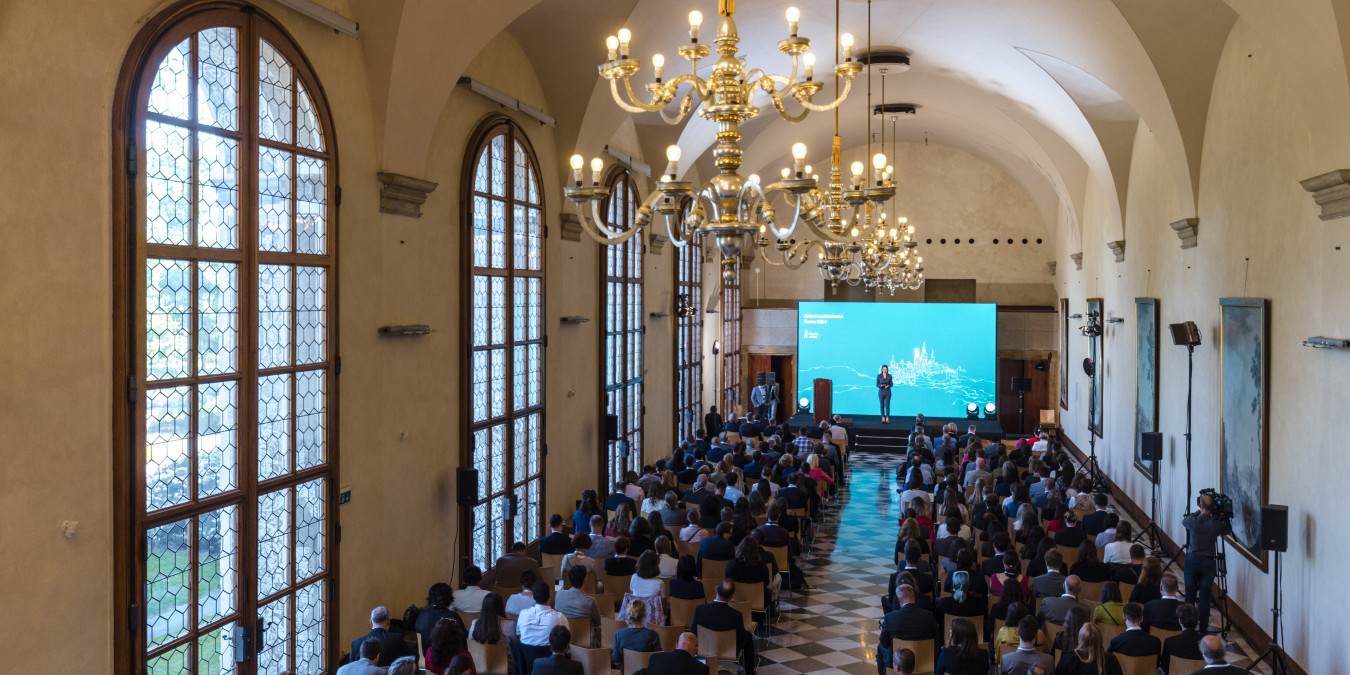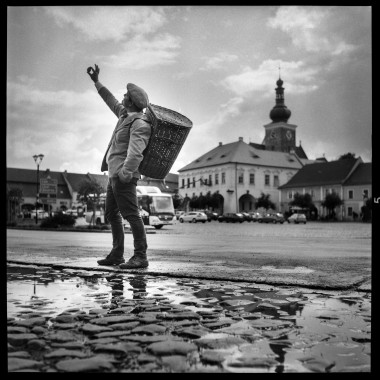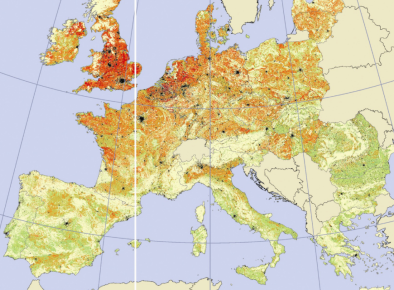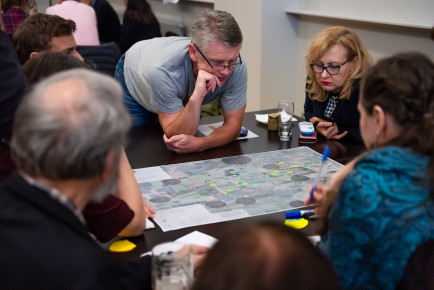Green modernisation will either be fair or not at all: recommendations from the first annual national climate conference
Published: May 15, 2024 Reading time: 5 minutes Share: Share an articleYesterday's Green Modernisation of the Czech Republic 2024 conference, organised by People in Need and other organisations in the Prague Castle Ball Games Hall, emphasised the importance of cooperation across sectors. Politicians, academics, representatives of industry, agriculture, trade unions, NGOs, and companies discussed the need for a socially sensitive approach to tackling the impacts of climate change. Forty experts from the Czech Republic and abroad spoke at the conference and stressed the need for interdisciplinary cooperation in this key area.

The conference was held under the auspices of the President of the Czech Republic Petr Pavel and it aimed to show, through many examples, the various steps and concrete activities that are already taking place in the field of green modernisation in the Czech Republic and abroad that can serve as inspiration.
Web page for the Green Modernisation of Czech Republic 2024
"We need to talk not only about the threats but also about the solutions, that it is possible, that there is a way and we can solve this problem. The prerequisite is that the whole society really gets involved. We need to have a dialogue in order to succeed in decarbonisation and to find understanding across the whole spectrum of society," said Ladislav Miko, Environmental Advisor to the President of the Republic.
Our director, Šimon Pánek, followed up with a reminder of the importance of education, dialogue and non-dogmatic discussion in society.
"Our society sometimes seems to be divided into ones and zeros, and there is often no room for discussion in between. I have never liked that, which is why I am glad we could co-organise this conference," said Šimon Pánek.
The Minister of the Environment, Petr Hladík, also commented on the necessary steps in the field of green modernisation, stating, “The road to green modernisation in the Czech Republic will be long, but it is absolutely essential. We in the government are aware that this modernisation will either happen fairly or not at all. The Czech Republic has one trillion crowns at its disposal for funding."
The conference featured a number of examples of good practice across sectors:
We need to find the language with which to talk about green modernisation
Some of the speakers also addressed the need to find an appropriate language to talk about green modernisation. "We need to find new ambassadors and new ways of telling the story in the climate change field. We need to show climate protection in the Czech Republic here and now - showing concrete benefits and generally telling fewer stories about the threat itself, but to show that it makes sense to try to do something. That even small municipalities, schools, and even kindergartens can do many things themselves. We should show purely practical things," explained the founder of Institute 2050, ecopsychologist Jan Krajhanzl.
Other speakers also addressed the areas of energy, transport, agriculture, education, and media work on green modernisation.
Energy: the role of trade unions and the voice of the young generation
In the area of energy, representatives of power companies and the non-profit Frank Bold Society presented the possibilities of using community power sharing. Tomáš Vrbický from NOHO presented the Kukleny Neighbourhood near Hradec Králové, which is to be the first carbon-neutral neighbourhood in the Czech Republic. The Mayor of Slavičín, Tomáš Chmela, presented the example of an energy-waste complex called Cirkula which combines different energy sources in the village and provides heat for its 2,500. The complex also includes a collection yard, biomass processing, and other activities under one roof. Jana Drápalová, the mayor of Brno’s Nový Lískovec district, described the modernisation and energy savings of prefabricated houses and other buildings in the district, which have contributed to a significant reduction in energy consumption.
The conference was addressed by Marta Ctiborová and Rostislav Palička, representatives of the Energy and Mining, Geology and Petroleum Workers' Union. They explained the situation in areas where coal mining is being curtailed and support is needed for people who are losing their jobs and facing a change of profession. The representative of the German Trade Union Confederation, Gerhard Moch, described the process of the coal mining phase-out and related measures in Germany.
The younger generation’s voice was represented at the conference by Lucie Smolková from Partnership Environmental Foundation and Jakub Nekvasil, founder of Telperion. In their presentation, they thanked previous generations for the many steps that have already been taken to address the impacts of climate change, but also made several recommendations for different groups - from politicians to each of us.
Agriculture: we need to look after the landscape and change the subsidy system
The conference presented examples of Czech farmers who are already approaching their work with respect for the landscape and trying to be sensitive and retain water in it. In addition to the possibilities of using the land and its potential for carbon storage, they also mentioned the importance of the system of setting state subsidies. "After decades in the field of landscape care, we have been told that not even non-profits, enthusiasts, or enlightened farmers can change the state of the landscape. The main obstacle is the poorly set up subsidy system. This needs to be changed," said Jan Korytář from the Coalition for Landscape.
Education: to inform and lead to action
Petr Daniš, director of the Education Centre Tereza, described the importance of climate education.
Media: let's tell stories that people can relate to
Czech Radio's climate editor Jan Kaliba and columnist Apolena Rychlíková described the barriers journalists who want to cover this complex topic must overcome. They also pointed out the need to use more concrete stories and relate the topic to the everyday lives of readers so that they can better identify with it.
You can play the recording of the Green Modernisation of the Czech Republic 2024 conference on iVyslínia Czech Television (in Czech language) here: https://www.ceskatelevize.cz/porady/16333552384


